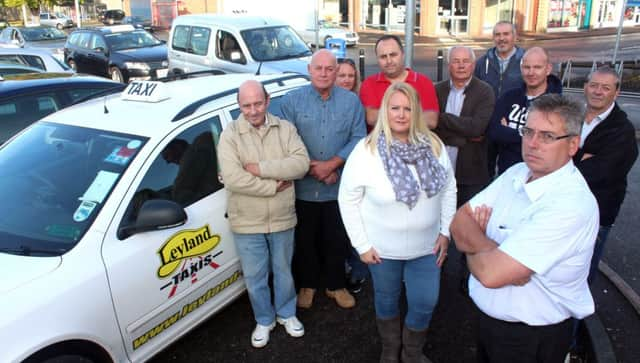Decision time for borough’s taxi drivers


Members of South Ribble Council’s licensing committee must decide tonight whether to uphold a 2005 decision, requiring all the borough’s taxis to be wheelchair accessible by next April.
Although firms were given 10 years to prepare, many are now pressing for a change of rules, claiming there isn’t enough demand to justify modifying every vehicle.
Advertisement
Hide AdAdvertisement
Hide AdIndependent driver John Gregory of Leyland said: “We don’t want to isolate disabled people, but we don’t want to isolate all of the borough either. The luxury of travelling in a saloon car will be taken away. For some of the elderly, it isn’t always practical for them to use a ramp so a smaller car is much easier.”
Cab owners will have to fund the cars themselves - a bill that could reach £30,000 - and their petition has gained hundreds of signatures from the public.
Mr Gregory added wheelchair users usually pre-book, and fares might have to go up to cover upgrade costs.
Pam Milner, whose son Jack is confined to a wheelchair because of Duchenne Muscular Dystrophy, believes SRBC is not going far enough over wheelchair accessible vehicles (WAVs).
Advertisement
Hide AdAdvertisement
Hide AdMrs Milner, a BAE worker from Longton, said: “It seems that most private WAV’s in South Ribble are used for contract work during the day to ferry disabled people to and from schools and colleges, therefore the drivers tend to work daytime hours and not at night time.”
Jack recently had to pay £40 for a return journey to attend a function less than a mile and a half away from his home, after no South Ribble firms were available and a taxi had to come from Preston.
Mrs Milner, who says the changes “shouldn’t have come as a shock” to taxi operators, has also challenged firm’s argument that most wheelchair bound residents have their own adapted vehicles, and urged SRBC to follow Preston Council’s lead by insisting all black cabs carry ramps.
She added: “Perhaps rather than listening to the taxi drivers, SRBC should survey the disabled residents.”